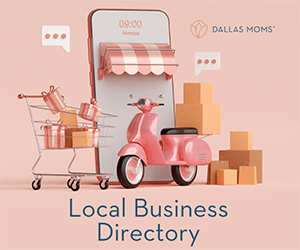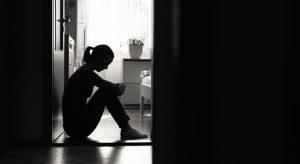It’s been about 18 years, and so much remains to grieve every May. I don’t have a mom to celebrate like so many others. My children have less grandparents than most of their friends. Mother-daughter outings only exist with me being the mom and never the daughter. My mother isn’t dead, but our relationship is.
I’m a motherless mother by choice. It’s a club I hate belonging to, but the price of admission to its alternative is just too much. To the moms who have strained or absent relationships with their own mother, these four beliefs have served me well.
>> RELATED READ :: Motherless Mothering When It’s Not A Choice <<
Opinions
People will offer their opinions. You don’t need to do anything with them.
When it becomes known that my mother and I haven’t really spoken in almost two decades, people have some really strong feelings. Even the most well-intended, emotional response can feel like criticism.
“I could just never do that.”
“But you only get one mom.”
When I’m met with what feels like someone’s judgment or unsolicited advice, I remind myself that people’s opinions are often reflections of their own experiences. If I grew up with Jan Brady as my mom, I, too, would be clouded with confusion regarding mother-daughter estrangement. At the very beginning of my motherless-mothering-by-choice journey, I wanted people to stand in alignment with me. Like points on the scoreboard, I wanted to hear people’s approval and validation. I often shared too much as an attempt to defend my choice. It just ended up exhausting me more.
Today, I can hold space for the reality that everyone has the right to think what they want about my choice. It’s not my job to convince people what I did was “right,” instead I can listen without feeling compelled to act or defend.
Boundaries
Boundaries are healthy and necessary.
The word boundaries elicits a particular picture for many people: Walls. Fences. Space. Instead, consider boundaries as permission to express what you want or need in any relationship. When people tell us or show us with consistency that they cannot give us what we want or need, then boundaries such as distance or space are something to consider.
Maybe the relationship with your mother doesn’t require as much space and distance that mine has accumulated. Consider what you want or need from your mother, and then express that in a way that is less of a demand and more of a wonder.
I can remember a specific conversation with my mom where I came to two conclusions about what I believed would be the perpetual state of our relationship. First, that being in a relationship with her would mean continuing to expose myself to childhood wounds that were far from being mended. And second, that it would all happen without apology. That even after directly confronting the things that I refused to ignore, I was met with disregard.
At first, I would spiral into anger when I replayed the final conversation in my head. Each time I had different responses than the one I had actually said to her. But none of them made me feel better.
Today, I know that the boundaries set in place were the only way for me to heal. I listened and believed her when she communicated that she could not be who I needed her to be. I didn’t like the answer, but I’m grateful for the transparency.
>> RELATED READ :: 7 Ways I Find Happiness in Grief <<
Grief
Grief is about loss. Grief is not about regret.
Choosing to not give my mom access to me or my family did not come lightly. There are grandchildren she has never met. Milestones she will never see. She wasn’t at my wedding.
My choice has come with a ripple effect that impacts many. There are times where the grief is overwhelming. If I didn’t know better, I might confuse grief as evidence of regret.
Give yourself permission to grieve. I can recognize the losses that accompany my decision to do so and acknowledge how overall it is still the healthiest choice for me and my family.
Not You
You are not your mother. At least, you don’t have to be.
If a difficult relationship between you and your mother has you doubting your own mothering abilities, it doesn’t have to. There is so much about my mother that I’ll never get to know or understand. And I’ve stopped trying to make sense of it all. Instead, my focus is postured towards being the mom my kids need me to be.
In the beginning my mothering choices could have easily been titled, “Opposite of My Mom.” Logically, if I was the opposite of the mothering I remembered, then I could guarantee the outcome would be better for all involved. Spoiler alert: I was wrong. This wasn’t a realization that came to me quickly, but something that revealed itself to me more than decade into our separation.
Today, I give myself permission to abandon the idea that all my choices have to be the opposite of her. If I could show up for my kids in the ways that they needed, that would be what mattered most. Instead of being the opposite, I learned I just needed to be different.
Motherless mothering isn’t something I wish for anyone. It’s lonely and sometimes hard to talk about. If you find yourself in a similar situation or suspect that your relationship with your mother might benefit from more space or firmer boundaries, I want you to know that you’re not alone.















I so needed this article TODAY! I appreciate you writing it and sharing your thoughts and experiences. It’s comforting to know I’m not in this club alone.
Hi Amanda! Thanks for taking the time to write this comment. I was just telling a friend the other day, I wish women felt more free to talk about complicated mother-daughter dynamics. Hugs to you!
I feel seen and validated. Thank you, Kathy <3